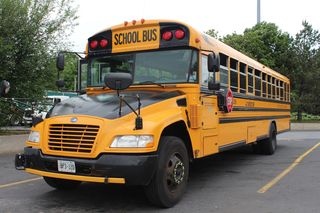Sleep
What Time Should School Start?
Two districts grapple with controversial changes
Posted February 7, 2018

In December, I wrote about Boston Public Schools (BPS) delaying a decision that would have implemented new start times for the 2018-19 year. BPS had sent a letter to parents on December 15, 2017 saying that more feedback would be sought through 10 additional meetings that were to take place between December 18 and 21 and that a final decision would be made in a January 10, 2018 meeting.
Nik DeCosta-Klipa of Boston.com wrote an article published on December 21, 2018 titled: “5 questions about Boston’s plan to change school start times, answered: The plan seemed to make sense at first but created an uproar”.
BPS did not wait until January 10, 2018 to make the decision. The next day, December 22, 2017, Jasmine Heyward of Boston.com authored a piece including a letter the superintendent sent to parents announcing that start times would NOT be changed for 2018-19 and that the matter would be studied further in the coming months, but with no specific timetable.
Many other school districts nationwide are at some stage in the process of considering or implementing changes in school start times. Some districts have changed them in previous years and are trying to determine if the changes have had the desired effect. Some districts have announced changes in the coming year, and some districts are still in the process of gathering input on whether to change or not.
The decision for a large district like BPS is very complex just from the aspect of transportation alone, considering the size of the city, traffic patterns, and the number of schools. Yet even for very small districts, the decision is a complex and difficult one. Consider the case of Scarborough, Maine, a school district with only six schools.
Like many other districts, Scarborough has proposed that in 2018-19, their middle school and high school will start later than elementary schools, the reverse of what is presently the case. Four schools will begin at 8:00 am rather than 8:20 am (one 3-5 grade school) or 8:50 am (three k-2 grade schools). The middle school will start at 9:00 am versus 7:45 am this year, and the high school will start at 8:50 am versus 7:35 am this year.
Parents launched an online petition asking the school board to reconsider which as of February 7, 2018 had 763 signatures.
Parents of younger children who are opposed to the earlier start times argue that their children need the most sleep. They are correct according to guidelines published in 2015 by the National Sleep Foundation recommending that preschoolers should get 10-13 hours, elementary age students (6-13 yo) should get 9-11 hours, and middle to high school students (14-17 yo) should get 8-10 hours. Parents noted that while K-5 schools would start at 8:00 am, bus routes would begin at 7:00 am. To be ready for a 7:00 am pickup might mean waking up by 6:00 am to have time to get ready. For those children to get the recommended amount of sleep, bedtimes would have to be between 5:00 pm – the earliest bedtime for the youngest child (K) at the upper end of the sleep time range (13 hrs) - and 9:00 pm - latest bedtime for oldest K-5 student (5th grader 10 yo) at the lower end of the sleep time range (9 hrs).
Parents also mentioned, as they have in Boston, that children of many working parents would have to spend more time in after-school daycare since they would be getting out of school earlier. In Boston, this fact seems to have been central to the argument that families with fewer financial resources would be disproportionately burdened by early dismissal times for young students. For older students, getting out of school later was said to reduce the amount of time available for after-school jobs and for athletic practices.
The chair of Scarborough’s district is quoted as saying that looking back at the data and research, it supports the changes and that the board remains committed to the new start times that are in line with eight other districts in the area where similar changes have been made.
And speaking of data and research, I have mentioned previously that very little research has been done to determine if earlier start times for younger children are beneficial or harmful for their school performance. Further, much more study is needed to determine if later starts for older students have the expected benefits (more sleep, better academic performance, fewer tardies and absences, fewer discipline problems).


